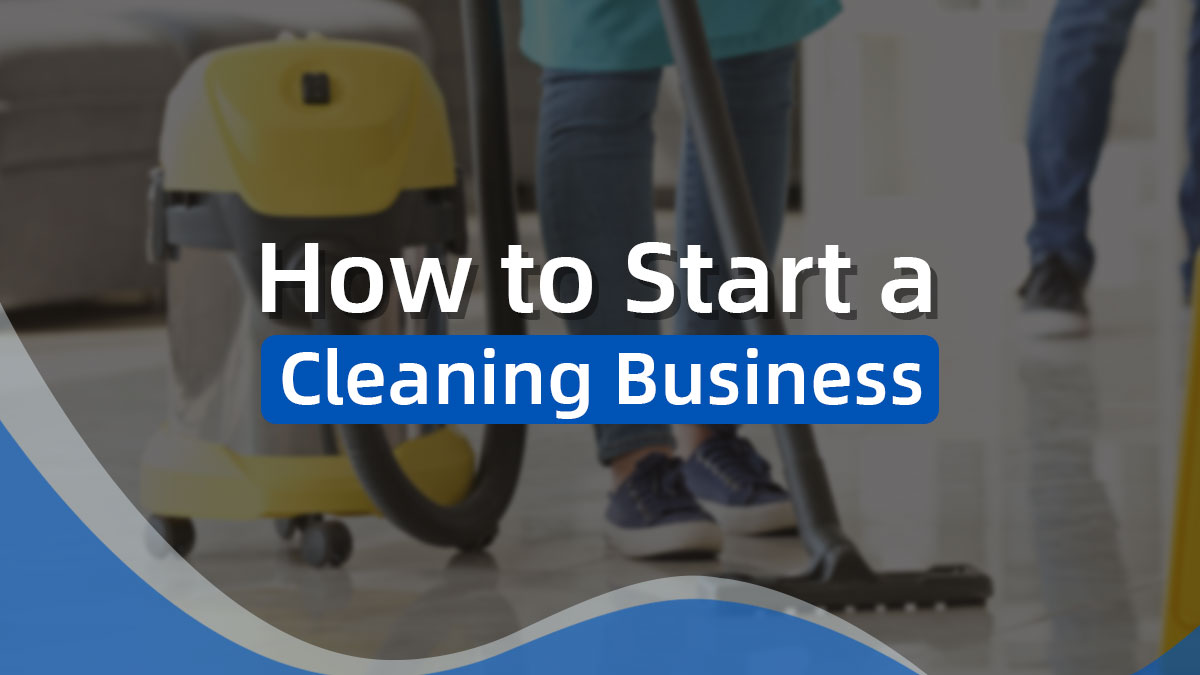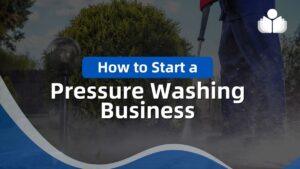Cleaning services are in high demand as busy individuals and businesses increasingly seek professional help to maintain cleanliness and hygiene. Starting a cleaning business offers aspiring entrepreneurs a lucrative and accessible opportunity with minimal barriers to entry. This type of business is appealing due to its low startup costs, flexible work schedule, and the potential to scale operations as demand grows. A cleaning business can be rewarding whether you cater to homes, offices, or specialized cleaning needs.
1. Research and Planning
Laying a strong foundation is crucial to starting a successful cleaning business. Careful research and strategic planning will help you understand the market and define your business objectives.
- Define Your Niche: Decide on the type of cleaning services you offer, such as residential, commercial, or specialty cleaning (e.g., post-construction cleanup, eco-friendly services). Choosing a niche helps you stand out and target specific customer needs.
- Conduct Market Research: Identify your target customers and evaluate local competitors to understand the market landscape. Research pricing trends, demand in your area, and any gaps in service that you can fill.
- Create a Business Plan: Develop a detailed business plan that outlines your goals, services, pricing structure, and budget. Include strategies for marketing, customer acquisition, and scaling your operations over time. This plan will serve as your roadmap for launching and growing your business.
2. Registering Your Business
Properly registering your cleaning business establishes it as a legitimate entity and ensures compliance with legal requirements. This step also builds trust with clients and protects you from potential risks.
- Choose a Business Structure: Decide on a legal structure for your business, such as a Sole Proprietorship, LLC, or partnership. Each structure has different implications for taxes, liability, and paperwork, so choose the one that best fits your needs.
- Register Your Business Name: Pick a professional, memorable name that reflects your services and brand identity. Verify that the name is unique and register it with local or state authorities.
- Obtain Required Licenses and Insurance: Secure the permits, such as a general business license, to operate legally in your area. Purchase liability insurance to protect against accidents or damages and workers’ compensation if you plan to hire staff. These safeguards are essential for building a credible and secure business.
3. Gathering Supplies and Equipment
Equipping your cleaning business with the right tools and supplies is essential for delivering high-quality service. Investing in durable and effective equipment will save time and ensure customer satisfaction.
- Essential Cleaning Supplies: Stock up on basic items such as cleaning solutions, gloves, mops, vacuums, buckets, and microfiber cloths. These are necessary for handling a wide range of cleaning tasks, from dusting to deep cleaning.
- Invest in High-Quality Equipment: Choose professional-grade tools and machines to improve efficiency and reliability. Durable equipment lasts longer and enhances the quality of your services, leaving a better impression on clients.
- Consider Specialty Tools: For specific cleaning jobs, invest in specialty equipment like carpet cleaners, pressure washers, or eco-friendly alternatives. These tools can expand your service offerings and appeal to clients with unique cleaning needs, such as environmentally conscious customers or those requiring deep-cleaning solutions.
4. Setting Up Your Business Operations
Establishing efficient business operations is essential to ensure smooth service delivery and client satisfaction. Clear pricing, agreements, and tools for organization will streamline your workflow and build professionalism.
- Create a Pricing Model: Determine how you’ll charge for your services—per hour, per job, or through package deals. Research industry standards and adjust your rates based on the complexity of tasks, materials required, and your target market.
- Develop Service Agreements: Draft detailed service agreements that outline the scope of work, payment terms, and cancellation policies. These agreements protect you and your clients by setting clear expectations and minimizing disputes.
- Organize Scheduling and Payments: Invest in software to manage bookings, track appointments, and send invoices efficiently. Tools like scheduling apps and accounting software will help you stay organized, save time, and maintain accurate financial records.
5. Marketing Your Cleaning Business
Effective marketing is key to attracting clients and building a strong reputation for your cleaning business. Combining online and offline strategies will help you reach your target audience and grow your customer base.
- Build an Online Presence: Create a professional website showcasing your services, pricing, and contact information. Establish social media profiles to engage with potential clients and share testimonials or cleaning tips. List your business on online directories like Google My Business or Yelp to boost local visibility and credibility.
- Leverage Local Advertising: Promote your services within your community using flyers, posters, and business cards. Advertise in local newspapers, magazines, or community bulletins to reach nearby residents and businesses needing cleaning services.
- Encourage Word-of-Mouth: Word-of-mouth referrals are powerful for growing your business. Offer referral discounts or incentives to loyal clients for recommending your services. Ensure excellent service quality and customer satisfaction to inspire positive reviews and repeat business.
6. Hiring and Training Staff
As your cleaning business grows, hiring and training staff will help you meet increased demand and maintain service quality. Building a dependable and skilled team is crucial for scaling your operations effectively.
- When to Hire: Consider hiring staff when you receive more requests than you can handle alone. Expanding your team allows you to take on more clients and offer additional services while maintaining high-quality standards.
- Train Staff: Provide comprehensive training to ensure consistent cleaning techniques, safety protocols, and excellent customer service. Well-trained employees represent your business and help maintain your reputation.
- Conduct Background Checks: Conduct thorough background checks to ensure reliability and trustworthiness in your hires. Clients trust your team to work in their homes or offices, so building a trustworthy staff is critical to your business’s success.
7. Managing Your Business
Effective management is essential for maintaining smooth operations, ensuring profitability, and delivering excellent service. By staying organized and proactive, you can keep your business running efficiently and keep clients happy.
- Track Expenses and Revenue: Use accounting software to monitor your income, track expenses, and manage invoices. Efficient financial management helps you stay on top of your budget and identify areas for improvement or growth.
- Maintain Equipment: Regularly clean, inspect, and service your cleaning tools and equipment to ensure they remain in good working condition. Proper maintenance extends the life of your tools and prevents interruptions in your operations.
- Ensure Customer Satisfaction: Actively seek client feedback to identify improvement areas. Address complaints promptly and professionally to build trust and maintain a positive reputation. Satisfied customers are more likely to become repeat clients and refer your services to others.
8. Scaling Your Cleaning Business
Scaling your cleaning business allows you to reach new markets, increase revenue, and establish a stronger presence in your industry. Strategic growth ensures your business remains sustainable while meeting higher demand.
- Expand Your Services: Diversify your offerings by adding specialized services like deep cleaning, carpet cleaning, or eco-friendly options. Catering to unique needs can attract a broader range of clients and set you apart from competitors.
- Explore Franchising: If your business is thriving locally, consider franchising to expand into other regions. Franchising allows you to grow rapidly while maintaining consistent quality across multiple locations.
- Invest in Marketing: Boost your visibility and reach a larger audience by investing in digital marketing. Use targeted ads, social media campaigns, and Search Engine Optimization (SEO) to attract new customers and establish a strong online presence. Enhanced marketing efforts will drive awareness and support your scaling efforts.
Conclusion
Starting a successful cleaning business requires careful planning, efficient operations, and a commitment to quality service. Key steps like defining your niche, creating a business plan, and investing in the right tools can help you build a strong foundation. Begin small, stay organized, and prioritize excellent customer service to establish trust and loyalty.
With dedication and consistent effort, your cleaning business can grow steadily, providing financial independence and long-term success. Take the first step today and turn your vision into a thriving reality.
 Sections of this topic
Sections of this topic
















